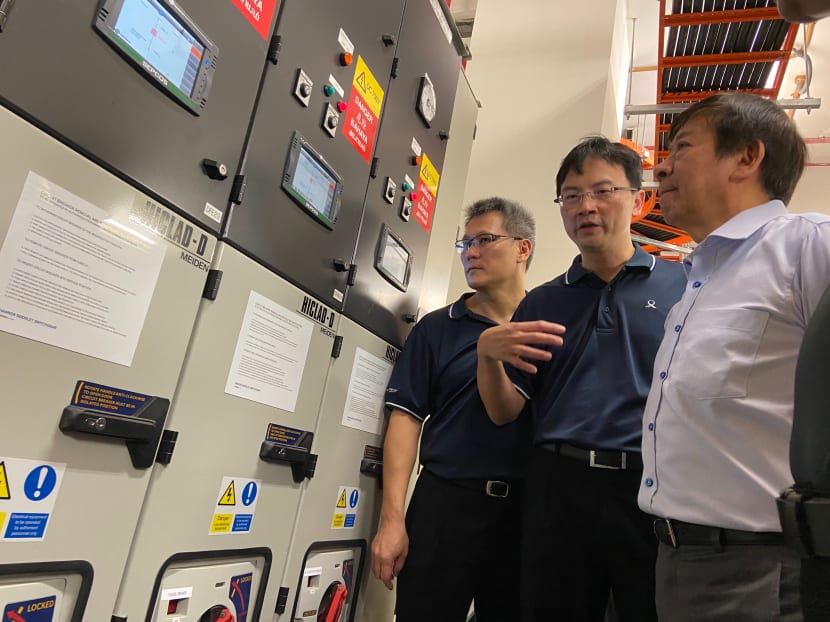Renewing the North-South and East-West MRT lines will cost over S$2.5 billion: Khaw Boon Wan
SINGAPORE — A multi-year effort to improve Singapore’s two oldest MRT lines will cost over S$2.5 billion, Transport Minister Khaw Boon Wan revealed at a media event on Thursday (Jan 2).

Transport Minister Khaw Boon Wan looks at the recently renewed power systems at Bukit Batok MRT Station.
SINGAPORE — A multi-year effort to improve Singapore’s two oldest MRT lines will cost over S$2.5 billion, Transport Minister Khaw Boon Wan revealed at a media event on Thursday (Jan 2).
The renewal works, which began in 2013, involve six core systems along the North-South and East-West lines. Three out of the six projects were completed last year. The rest are expected to be done by 2023.
Here is an update on the projects so far:
THE SIX CORE SYSTEMS
Completed:
Still underway:
Power supply system renewal (40 per cent done)
Track circuit replacement (25 per cent done)
Replacement of 66 first-generation trains (to be deployed in 2021)
NEW POWER SYSTEM WILL MINIMISE FAULTS
Thursday’s media event at Bukit Batok MRT Station focused mainly on the power supply project for the two lines, which is now 40 per cent done.
The new power systems will enable rail operators to improve real-time monitoring of trains and equipment, allowing them to better detect faults and intervene early before they worsen.
For example, new voltage limiting devices have been installed to minimise line-wide train disruptions caused by single power trips at particular sections of the network.
That was what caused the massive train breakdown in 2015, when services on the two lines came to a complete halt for several hours.
Mr Kuek Jia Jun, 27, a senior engineer at the SMRT power team, said that the power asset renewal project was “extremely critical” as he was already “seeing how it has vastly boosted reliability”.
Speaking to TODAY, Mr Kuek said that the old system had “ageing parts that you have to replace quite often, but with the new gear, you see less of that, so there is less need to activate us”.
TRACK CIRCUIT REPLACEMENT, NEW TRAINS
Mr Khaw said that about a quarter of the track circuit works has been completed, with the stretch between Bukit Batok to Khatib stations fully replaced.
The new track circuit system will be able to automatically detect broken rails that require repairs, and speed up service recovery efforts after a fault. Replacement works are expected to be finished around 2022.
Commuters can expect 66 new trains to replace the ones that have been running since 1987. They are on schedule to be delivered progressively from 2021, Mr Khaw added.
The trains will have built-in monitoring and diagnostic systems to detect faults early and track their performance in real time. The interiors are also designed to make boarding easier.
While the multi-billion dollar plan to improve the North-South and East-West lines is already underway, Mr Khaw said that “during this decade — 2020, 2030 — our capital expenditure on MRT expansion will peak as several new MRT projects will be progressing at the same time”.






